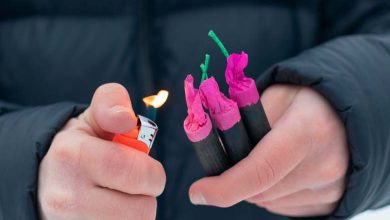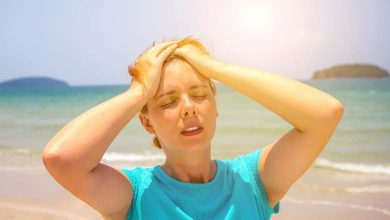6 things to know about heavy legs

Venous insufficiency affects one woman out of two, with more or less marked symptoms but very often characterized by heavy legs regularly. Explanation of this common phenomenon.
Heavy legs are a widespread phenomenon, characterized by a feeling of weight and tension in the legs, generally accentuated by heat and fatigue. This sensation is linked to poor blood circulation in the veins, which in the long term can cause the formation of varicose veins.
Heavy legs: do not take the symptoms lightly
The phenomenon still passes when it appears only the days of very strong heat, at the time of a long way in car, train, plane or if one tramples for a long time. But when it occurs frequently and the feeling of heaviness turns into pain, it is necessary to consult. Most often, it is a venous insufficiency, but a cardiac insufficiency or a renal pathology can also be detected.
Age, gender, hormones: what causes heavy legs?
Of course, heredity plays a role, and the risk of suffering from a venous disease increases, especially if both your parents suffered from it. But as we get older, blood circulation tends to stagnate. This happens more prematurely in women than in men. With the hormonal change that occurs at the time of menopause, the phenomenon is accentuated due to a lower production of progesterone.
Venous insufficiency: how to relieve heavy and painful legs?
Contention and venotonics
Dealing with the problem is tantamount to creating a breeding ground for edema, varicose veins and even leg ulcers. Herbal venotonics (without prescription) can alleviate the symptoms. But as soon as the problem worsens or small varicose veins (3 mm and more) appear, compression stockings or tights adapted to the morphology (available in pharmacies, with a medical prescription) become essential.
Get some height
Elevate your legs four to five times a day (feet on a cushion, legs above hip level) and your mattress by 15 cm to sleep seven to eight hours with your legs up. Also limit salt in your diet, which promotes water retention. Drink 1.5 to 2 liters of water a day, in small sips, to increase tissue drainage. You should feel better.
Avoid or treat: take an anti-swelling walk
Whether as a preventive or curative measure, walking is the best way to reduce heavy legs. By crushing the veins in the arch of the foot and contracting the calves, which pump blood to the heart, it activates venous return. Swimming with mini-fins has a similar action, with the added bonus of the self-massaging effect of water!
What is the best remedy for heavy legs?
ClariVein is a recent technique used at the Toulouse University Hospital. It avoids sclerotherapy and thermal ablation, which require anesthesia by tumescence. Here, a sclerosing product is dispersed through a catheter into the vein, which irritates it mechanically and destroys it, even if it is of large calibre. All this is done without pain or anesthesia.












